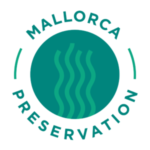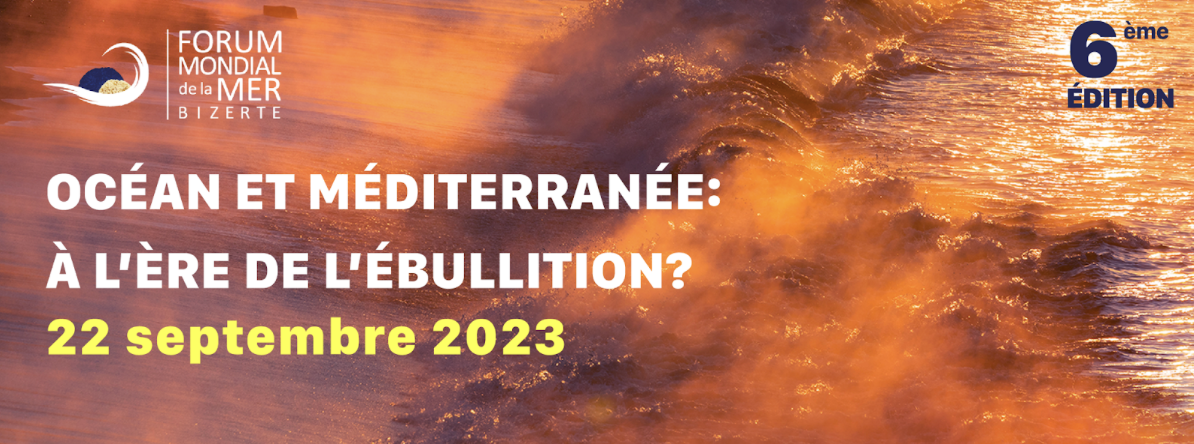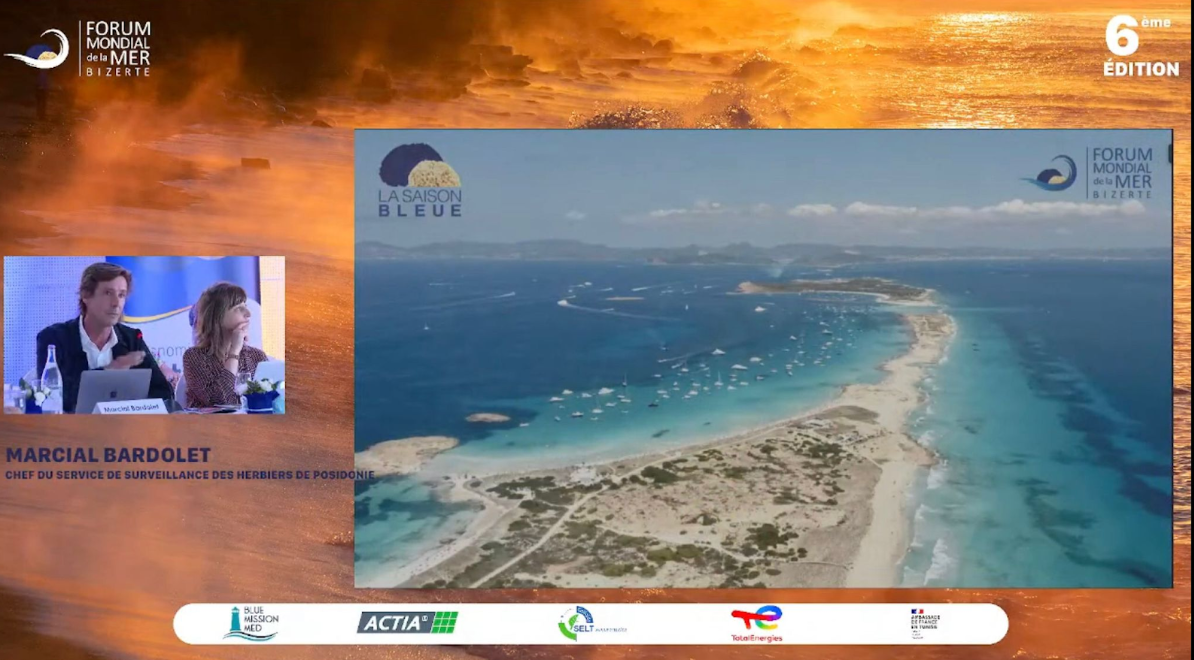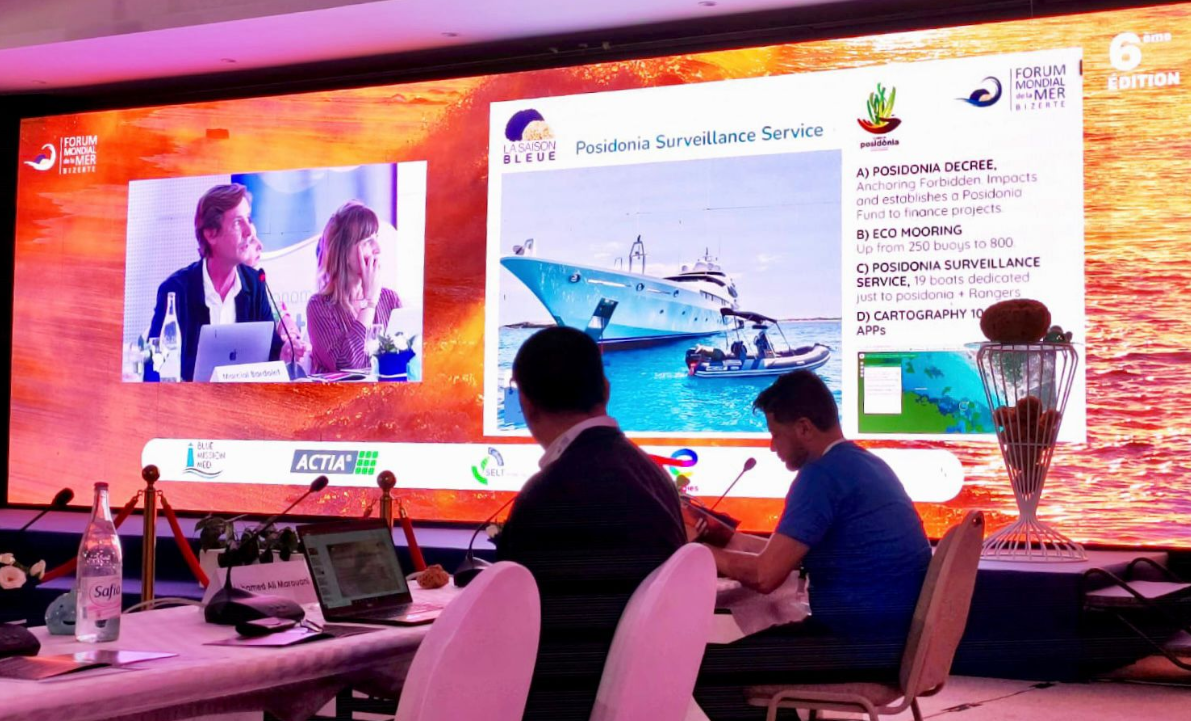
Nachrichten
4 Oktober 2023
INTERVIEW MARCIAL BARDOLET: 6TH WORLD SEA FORUM
At the 6th World Ocean Forum in Bizerte, Marcial Bardolet, a member of our advisory board, participated in the event. During this forum, renowned experts and leaders in marine conservation, such as Rym Benzina, Olivier Poivre d’Arvor, and Pascal Lamy, came together to address the critical challenges facing the oceans and the Mediterranean Sea in the era of climate change. With the summer of 2023 marking a record of high temperatures, issues of acidification, rising sea levels, and loss of biodiversity have become a central concern. The urgency of concerted actions to protect vital ecosystems like the oceanic posidonia in the Balearic Islands was a topic that was put on the agenda, highlighting the crucial role of these seagrass meadows as a carbon sink and bastion against coastal erosion. The Forum concluded with a call to collective action, anticipating critical discussions at upcoming global summits to assess progress towards marine conservation goals for the 2030 and 2050 agendas.
What is the Forum and who was present?
The 6th World Ocean Forum in Bizerte, Tunisia (forumdelamerbizerte.com), is held under the tutelage of personalities like Rym Benzina (La Saison Bleue), Olivier Poivre d’Arvor (France’s Ambassador for the Poles and Maritime Affairs), and Pascal Lamy (Former Director-General of the World Trade Organization). This ocean “Think Tank” has established itself as a space for dialogue and collaboration, highlighting emerging challenges and opportunities associated with the oceans and the Mediterranean Sea, especially in the context of climate change. It is a forum where about 40 international experts gather, including personalities like Dr. Vladimir Ryabinin, Executive Secretary of UNESCO’s Intergovernmental Oceanographic Commission, and representatives from organizations like La Saison Bleue and the Oceanographic Foundation of Monaco.
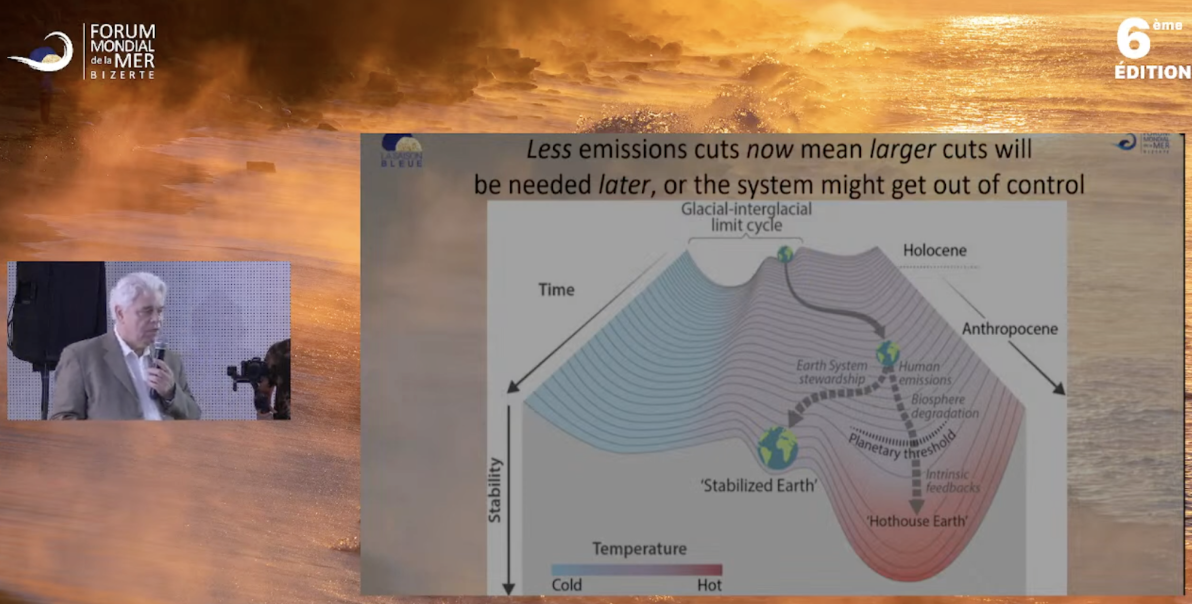
This year, the focus is on “The Ocean and the Mediterranean in the Era of Boiling Waters.” The summer of 2023 has been the hottest on record, marking an alarming transition to an era of extremely warm waters, and the steps we all take will be decisive in preventing the collapse of the ocean and our seas. Oceans face unprecedented challenges, including acidification, rising sea levels, and loss of biodiversity, and therefore economic and social. Forecasts and scenarios depend on the state in which we continue producing CO2 and how we improve the state of sea conservation. The forum also highlighted the importance of sea monitoring with projects like the Digital Twin of the Ocean
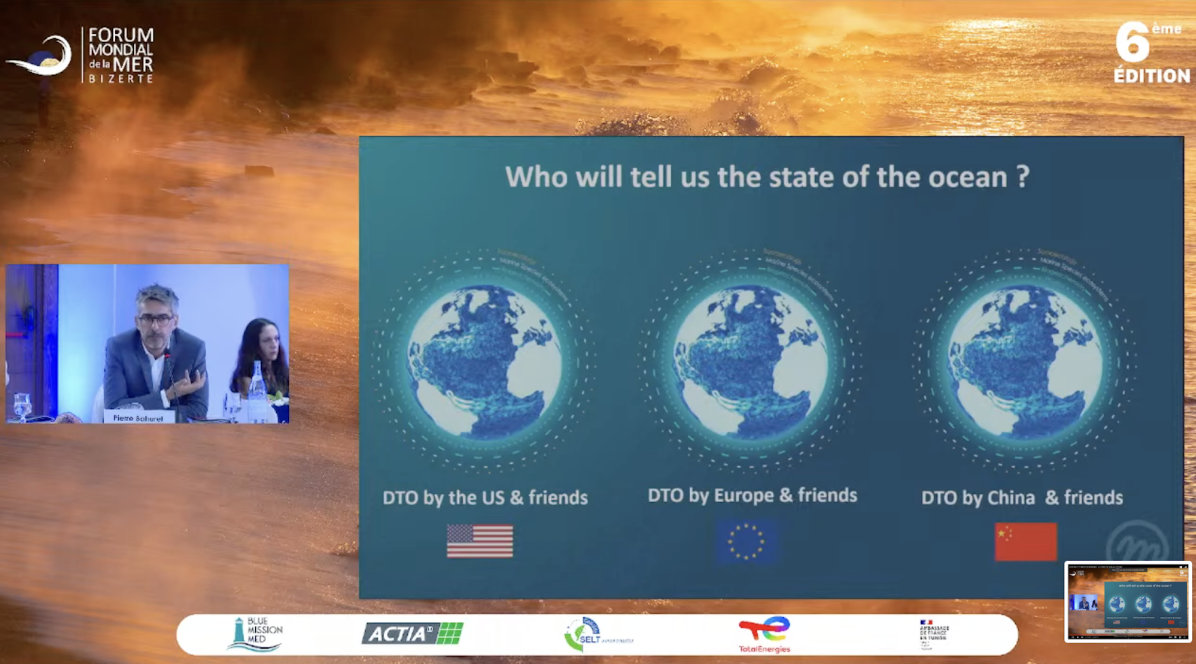
The Mediterranean is especially vulnerable to the effects of climate change. This year in the Balearic Islands, we have had 3 heatwaves with sea temperatures of 31 degrees. The posidonia meadows, which are the main marine habitat in the Mediterranean, can be dramatically affected by temperatures according to scientists. Generally, in the Mediterranean, we are witnessing an increase in extreme events that have a devastating impact on marine and coastal ecosystems. Our dune systems are therefore also vulnerable to this warming. The health of the Mediterranean Sea is essential for biodiversity, fishing, and the local economy, so the urgency of effective protection and conservation measures are very important. This being a forum of experts and not only representatives of countries, critical conversations and pressure for new impulses are of special interest to propose new ideas to international organizations.
What have you wanted to highlight? What role does posidonia play in climate change?
In my intervention, I shared the Balearic experience and our dedication of the Govern of the Balearic Islands and civil society for the conservation of oceanic posidonia. The Balearic experience in the conservation of Posidonia oceanica is unique in the Mediterranean and can be used for other regions to raise the level of awareness and protection we have on our islands. This marine forest is essential for the health of the Mediterranean, but especially I wanted to highlight its function to combat the climate crisis since, in addition to protecting against coastal erosion, the dune system, and providing sand, it also functions as a carbon sink. Moreover, the benefits are numerous as it oxygenates the waters and is a refuge for fauna and flora, being essential for biodiversity.
What do you highlight about the Balearics in this protection?
The Balearic Islands have been and continue to be pioneers in the protection of Posidonia. The Balearic Govern and civil society have worked to raise awareness and promote conservation. The declaration of Posidonia as a UNESCO World Heritage site in Eivissa i Formentera, the work carried out in the Natural Park of Ses Salines de Eivissa i Formentera, the Decree of Conservation of Posidonia of the Balearic Islands, the “Aula del Mar” and its educational project reflect the commitment of the Balearics and its citizens to marine conservation. Also, I would highlight the networks woven with other regions of our sea thanks to Conservation Collective and the Mediterranean Posidonia Network in which knowledge, experiences, and materials for education on the topics to catalyze the conservation of seagrass meadows throughout the Mediterranean are openly shared.
What are the conclusions or the upcoming summits?
The conclusions drawn in the Bizerte Forum Declaration emphasize the urgency of collective and collaborative action. The next summit are crucial for the oceans, I would like to highlight the one in Barcelona, with the UN Decade of Ocean World Conference and the United Nations Conference on Oceans 2025 in Nice, will be decisive in assessing our progress towards the 2030 objectives. If we fail to do our homework, the oceans, due to their high temperature and devastating effects on habitats, could collapse, leaving little option for recovery not only of the oceans but for biodiversity as we know it. The Mediterranean is presented as a pilot area, a reflection of the global challenges we face, underscoring the urgency of concrete and collaborative actions to urgently mitigate the impacts of climate change.
Esta web utiliza cookies para analítica digital, mejorar su experiencia de usuario y personalización de publicidad. Puede consultar nuestra política de cookies aquí.
